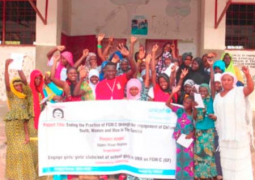The Regional Director of the WHO recently spoke on the role of traditional health practitioners in primary health care. The full text of his speech is reprinted below.
Today we are celebrating the 6th African Traditional Medicine Day throughout
Health Practitioners in Primary Health Care". This theme is in recognition of the 30th anniversary of the Alma-Ata Declaration of September 1978 which advocated health for all and called upon countries to include Traditional Medicine in their health systems in line with the Primary Health Care (PHC) approach.
WHO organised the International Conference on PHC and Health Systems in Africa in
Traditional Health Practitioners are an important human resource in the provision of health care services throughout sub-Saharan
Ladies and Gentlemen,
I am happy to inform you that since the adoption, at the 15th session of the Regional Committee for Africa, of the Regional strategy on promoting the role of traditional medicine in health systems, over half of the countries in this region have formulated traditional medicine policies, developed traditional medicine regulations and established traditional medicine programmes in the ministries of health. The Traditional Health Practitioners Bill and Code of Ethics for the practice of traditional medicine should be part of national regulatory frameworks which are particularly important to protect the dignity, integrity and safety of patients.
I wish to call upon traditional health practitioners and their organisations to support implementation of the Ouagadougou Declaration on PHC by mobilising communities for health promotion and disease prevention. I also call upon them to collaborate with research institutes in order to assess, through rigorous scientific procedures, the quality, safety and efficacy of their products and to facilitate registration and patenting. I reiterate my appeal to governments, the private sector and partners to support scientific research into traditional medicines and practices to produce evidence on their effectiveness in combating disease. The support for documentation and protection of traditional medicine knowledge is also vital for use by future generations and for equitable sharing of resources and benefits.
Ladies and Gentlemen,
WHO shall continue to support countries to transform resolutions and declarations into realistic policies and plans for institutionalising traditional medicine in health systems as part of its commitment to health-for-all using the PHC approach, in collaboration with the African Union, and other committed partners and stakeholders. This collaboration is particularly important for the attainment of the expected outcomes of the plan of action of the Decade of African Traditional Medicine which will end in 2010.


